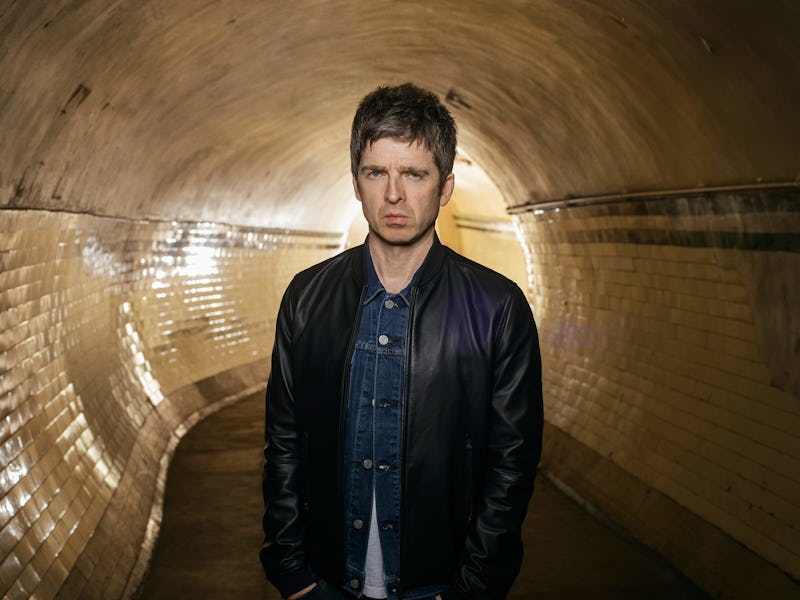Is Coldplay Better Than Radiohead? Just Ask Noel Gallagher
Getting inside the head of the Oasis and High Flying Birds frontman.

Oasis guitarist and songwriter Noel Gallagher is the kind of incendiary, unfiltered opinion machine that not only predates the term “troll,” but transcends it. In a new Esquire cover story promoting his recent solo album, he continues his career-long hot streak for spewing contrarian vitriol. He drags the current music scene — not to mention his normal treasure trove of pop stars (One Direction, Ellie Goulding, Adele and so on) — calls people “cunts” and says rock’n’roll needs more people with “fucking drug habit[s] who aren’t Pete Doherty.”
The most thought-provoking and hilarious assertion he makes is a criticism of his fellow ‘90s-emergent art-rockers Radiohead. Though at this point that band has ascended into its own amorphous, ultra-auteur category in the public imagination, Radiohead remains just another Britrock band to Gallagher.
“Look, as soon as Thom Yorke writes a song as good as fucking ‘Mony Mony,’ give us a fucking shout. Me and my missus, we were at the Coachella festival a couple of years ago and Radiohead were headlining. We were like, “Right, let’s give them one more chance. Let’s go and see them.”… They were playing this post-techno: “de-de de de.” We were a bit pissed… And then he started singing. No. Not for us. We’re party people.”
Critics love them, but when, even, was their last hit? Gallagher questions. Radiohead can get a unique, Radiohead-y mood going on a track, with some weird “textures” and drum programming, but can they even put a tune together?
It’s easy to just laugh at this willful bull-headedness. But Gallagher has his own kind of slightly demented point. Does Radiohead really create alluring, zeitgeist-capturing music these days? After 2011’s just-decent King of Limbs and a few relatively anonymous Yorke solo projects (his 2013 Atoms for Peace album, Amok, in particular), one wonders if the model is sustainable. Is their music suffering as they, more and more, force people to come to them, retreating into the clouds where Can and Autechre is the only music that matters? Is “serious” really better?
“When do people listen to [Radiohead]?” Gallagher asked. “Is it when they go out, or is it when they come in? Because I’m struggling to think.”
Gallagher is forgetting about hot boxing your buddy’s Volvo in college, but I find the question compelling, as someone who never finds an occasion to put on Radiohead records these days. You need to be in a Radiohead kind of mood, for sure. And what, exactly, is that? Where does “Radiohead-y” fall on the spectrum of human emotion?
Gallagher offers a point of comparison, someone who’s doing more for the proverbial “people” than Yorke outside of Oasis.
“[Coldplay’s] Chris Martin is a friend of mine. That fucking guy can write a tune.”
The locus of rock music may not just be “hits” for everyone. But the “great album” model isn’t the only way of looking at things. It feels hard to dispute Gallagher’s point about Martin’s command of melody versus Yorke’s, however you judge the music qualitatively. Pick the right lens, and Coldplay, as a resilient pop phenomenon, is logically just as great — or greater — a band than Radiohead is.
If you want to peep longer through this looking glass, read Gallagher’s interview here, and put on Parachutes.